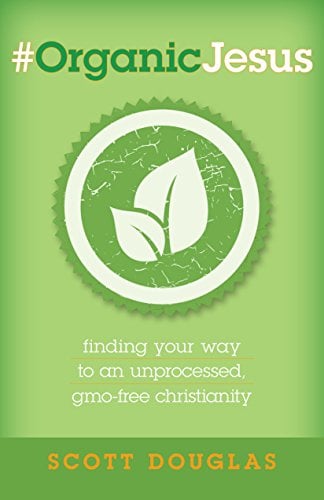#OrganicJesus: Finding Your Way to an Unprocessed GMO-Free Christianity
- Share
- Like
- Tweet
- Digg
- Tumblr
- VKontakte
- Buffer
- Love This
- Odnoklassniki
- Meneame
- Blogger
- Amazon
- Yahoo Mail
- Gmail
- AOL
- Newsvine
- HackerNews
- Evernote
- MySpace
- Mail.ru
- Viadeo
- Line
- Comments
- SMS
- Viber
- Telegram
- Subscribe
- Facebook Messenger
- Kakao
- LiveJournal
- Yammer
- Edgar
- Fintel
- Mix
- Instapaper
- Copy Link
 Author(s): Scott Douglas
Author(s): Scott DouglasPublisher: Kregel Publications
Price: $2.99 (June 17-18)
If Generation Next is supposed to question everything and trust no one, where does faith fit in?
Consumers demand that their food be pesticide—free, their cosmetics and shampoo be paraben-free and that everything possible—from clothes to toilet paper—be made without additives or chemicals. But there’s nothing that has more additives to the original product than Christianity. How do we get back to the 100% organic version of Jesus?
In his personal search for the organic Jesus, Scott Douglas goes on a funny, thought-provoking romp through the foundations of belief. Christianity, he says, has become a simulacrum—a bloated, overprocessed image that lacks the true substance of the real thing. His search for the original took him far and wide through historical Christ figures, urban legends, odd facts about the faith, freakishly flawed Christians, and the Internet. Using relatable, contemporary anecdotes, and unlikely wisdom concealed within humor, Douglas reveals a way back to the authentic essence of following Christ.
By including “wiki” breaks, social media callouts, quizzes, charts, and more, #OrganicJesus is ideal for readers raised on social media who can’t step out of their house without tweeting about it or eat lunch without posting on Instagram. Douglas is careful to be as non—biased as possible, writing not for any particular agenda—political or otherwise—but instead encouraging readers to seek their own path for spiritual renewal. The result is a candid look at modern Christianity that will challenge savvy young Christians to put as much effort into discovering sustainable religion as they do in their pursuit of an organic marketplace.
